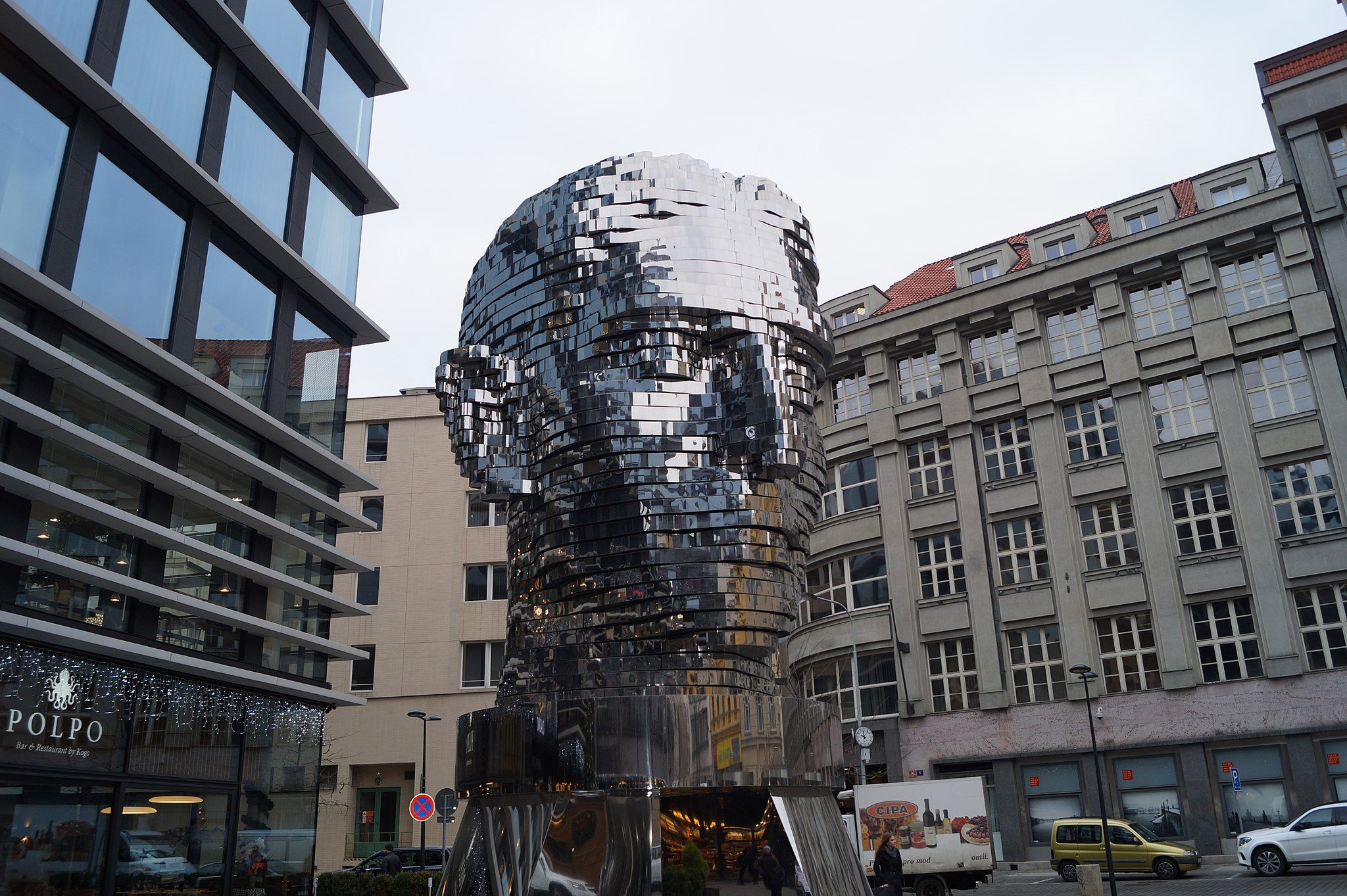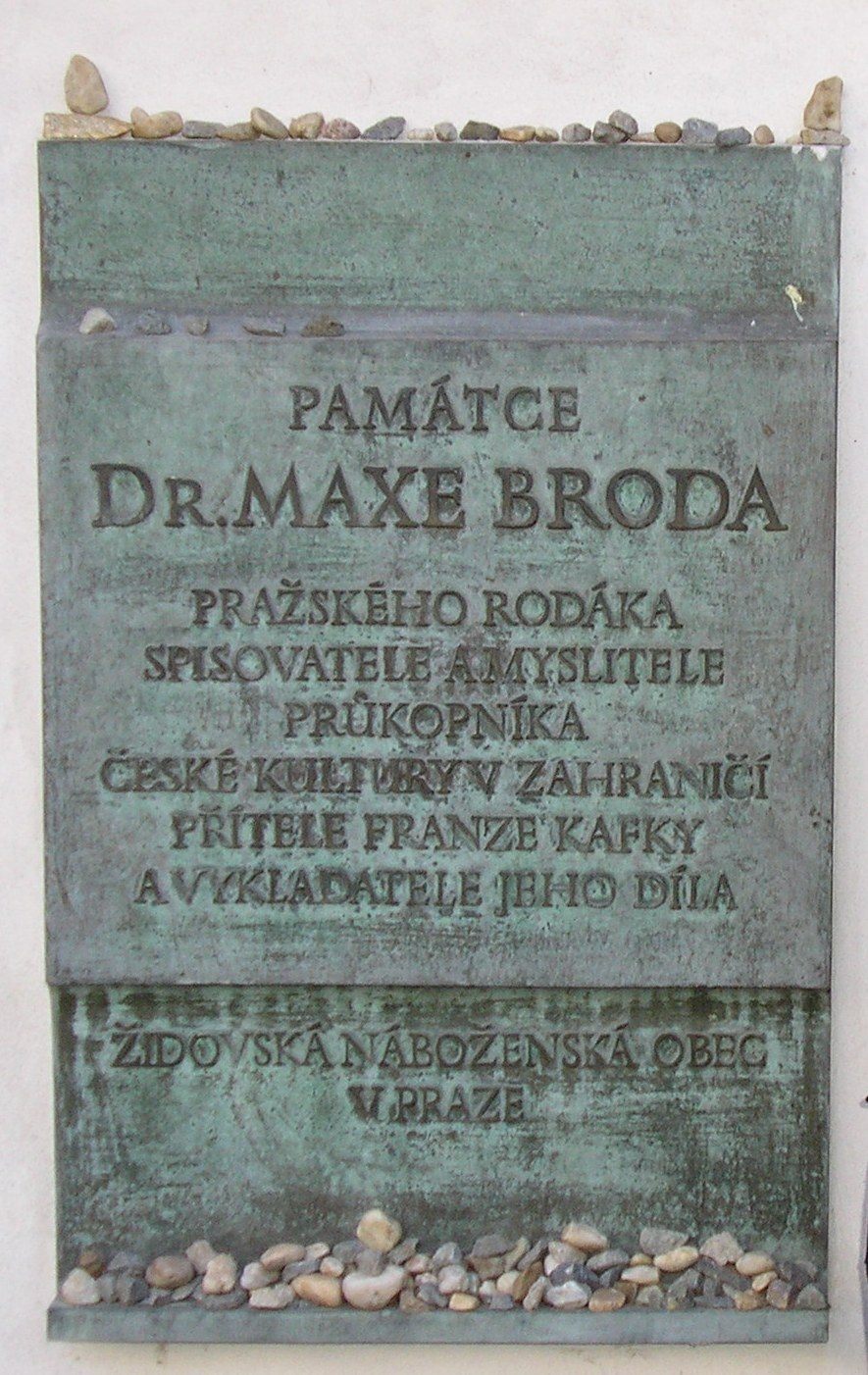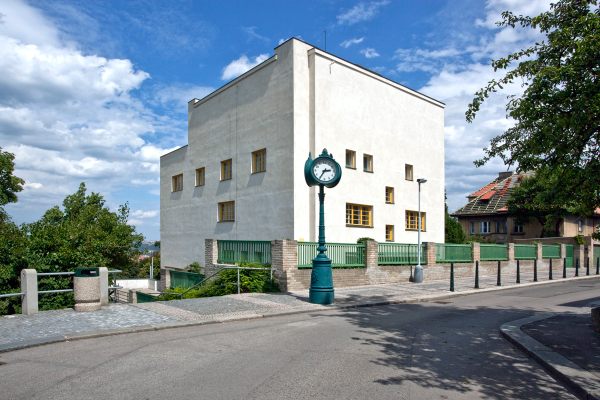How Prague Nearly Lost Kafka’s Legacy
It took a headstrong friend and decades of cultural change before the city embraced its hometown hero.

Franz Kafka’s face is ubiquitous in his hometown of Prague. In the Czech city’s Old Town, a large statue depicts the writer riding what appears to be a suit without an owner. Downtown, close to where Kafka once worked at an insurance company, David Černý’s mirrored bust of the author rotates using the same processes as traditional Czech clockwork.
Then there are the sites where visitors can experience Kafka’s Prague. The Café Louvre (opened in 1902 and still serving guests today) was once a gathering place for philosophers and intellectuals like Kafka. Café Savoy (established in 1893 and also still in business) used to host Yiddish theater presentations that Kafka was known to frequent.
Kafka himself had a conflicted relationship with Prague, as a German-speaking Jew in a Czech Catholic city. He was famously quoted as saying of the city’s allure: “Prague never lets you go… this dear little mother has sharp claws.” As evidenced by the streets, squares, plaques, and souvenirs– not to mention institutions such as the Franz Kafka Museum or the Franz Kafka Society (just behind the Franz Kafka Bookstore)– the city is less ambivalent about its native son.

But Kafka’s palpable presence in the city likely wouldn’t exist were it not for the persistence of the author’s friend and literary executor, Max Brod. In publishing many of Kafka’s most beloved works posthumously, Brod disregarded the author’s wishes and single-handedly expanded Kafka’s fame. Even more poignant is that in one pivotal period of time, a substantial amount of Kafka’s work was contained within a single one of Brod’s suitcases.
In 1902, Kafka met Max Brod while they were studying law together at Charles University in Prague. The two became fast friends through their shared passion for literature and their similar backgrounds (Brod, too, was a German-speaking Jew who had grown up in Prague). The two became so close that when Max Brod was excluded from Kafka’s philosophical circle at Cafe Louvre in 1905, Kafka abandoned the group in solidarity.

Brod was a champion of Kafka’s, encouraging the author to publish what little work he did during his lifetime, including The Metamorphosis, In the Penal Colony, The Stoker, and The Judgment. An accomplished figure in his own right, Brod achieved a level of success during his life that Kafka never did, eventually publishing 83 books. In contrast, Kafka spent most of his adult life toiling in an insurance company, writing only in his spare time.
Kafka’s insecurities held him back in this regard. He destroyed much of his own work while he was alive and demanded in his will that Brod do the same upon his death. When Kafka died in 1924 at the age of 41, Brod wasted no time in ignoring his friend’s request. He saw to it that The Trial, The Castle, and Amerika were published in 1925, 1926, and 1927, respectively. Brod would later claim that Kafka knew all along of his intentions to do so.

In 1939, Brod and his wife escaped the Nazis’ closure of the Czech border by minutes, eventually arriving in Tel Aviv with a suitcase full of Kafka’s papers in tow. Even as he settled into an entirely different life, Brod continued to release the contents of Kafka’s manuscripts until his death in 1968, carrying on a personal mission of “bring[ing] Kafka’s works before the public.” He succeeded in doing so, though the papers never made it back to Prague. Today, they’re owned by the National Library of Israel.
In the years after their publishing, Kafka’s work would garner acclaim from around the world. His influence was arguably most deeply felt among existentialists and absurdists, from Jorge Luis Borges in Argentina to Albert Camus and Jean Paul Sartre in France. But in his home country, it would ultimately take decades before Kafka ascended to the venerated status he holds there today.
Back in what was then called Czechoslovakia, Kafka’s works were treated with active disdain thanks to a wave of anti-German sentiment following World War II. Under Communist Party rule, the country did little to celebrate the writer’s legacy. It wasn’t until the fall of the Iron Curtain, when tourists began flocking to Prague, that the writer was fully celebrated as one of the Czech Republic’s most well-known and beloved sons.

Today, curious visitors to Prague can easily discover that Kafka spent nearly his entire life within the span of a few blocks of the city. Needless to say, his legacy traveled much farther. “Kafkaesque,” (or Kafkárna in Czech), is common vernacular in literary circles. The feeling of malaise triggered by ludicrous situations beyond one’s control, it seems, is universal.
We’ll never know whether or not Kafka sincerely hoped to remain as anonymous in death as he had in life. The author’s motives in his contributions to the literary canon and the city of his birth are, fittingly, enigmatic.
This post was written in partnership with CzechTourism. For more obscure and unconventional stories, from the Land of Stories, head here.





Follow us on Twitter to get the latest on the world's hidden wonders.
Like us on Facebook to get the latest on the world's hidden wonders.
Follow us on Twitter Like us on Facebook